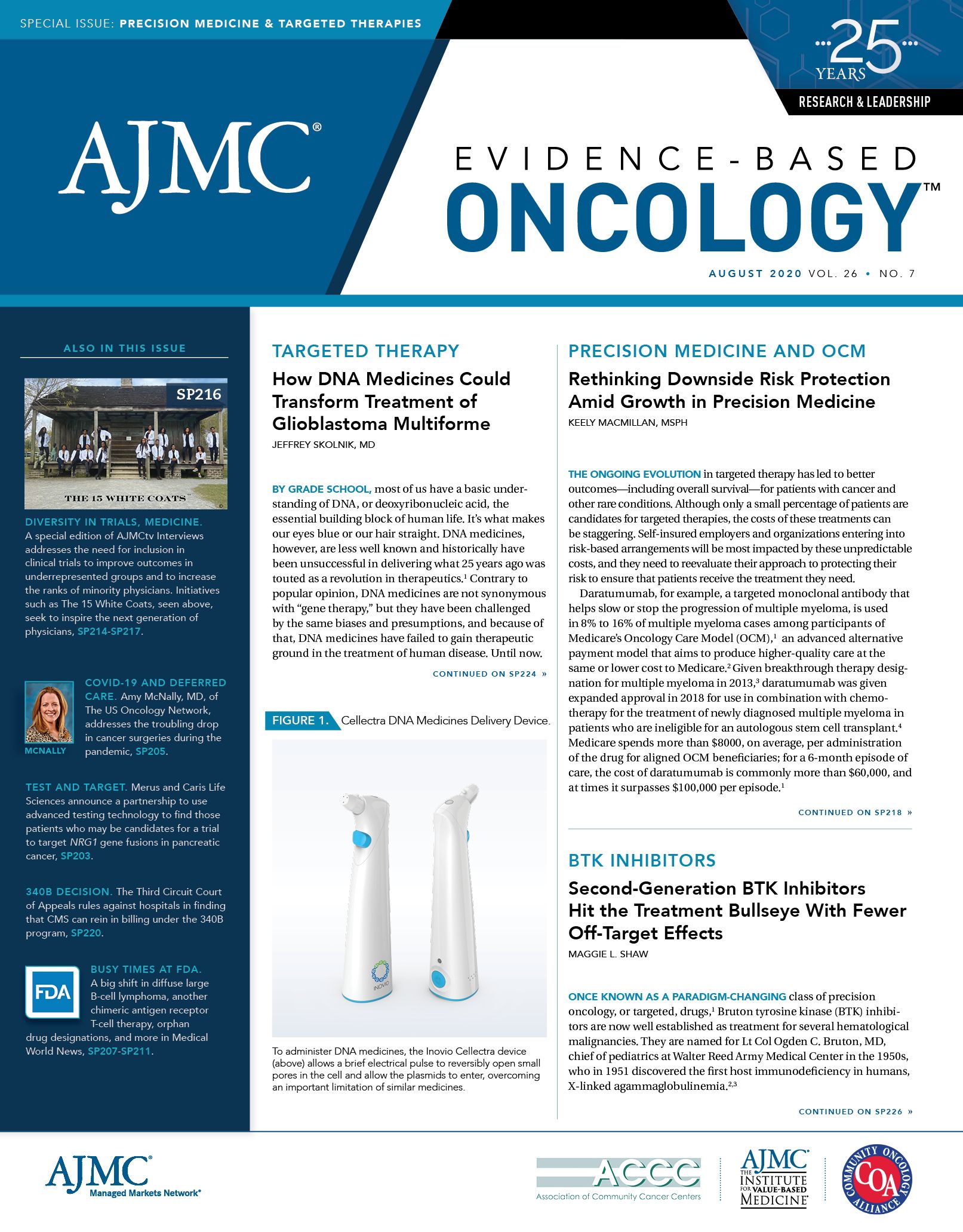- Center on Health Equity & Access
- Clinical
- Health Care Cost
- Health Care Delivery
- Insurance
- Policy
- Technology
- Value-Based Care
Tafasitamab Combination Approved for Adults With R/R DLBCL
A new treatment option is approved for patients with a common form of non-Hodgkin lymphoma who cannot have an autologous stem cell transplant.
On July 31, FDA approved tafasitamab-cxix to be used in combination with lenalidomide for second-line treatment of adult patients with relapsed or refractory diffuse large B-cell lymphoma (DLBCL), meeting the needs of patients who are not eligible for an autologous stem cell transplant.
Tafasitamab, to be sold as Monjuvi by MorphoSys and Incyte, is a humanized Fc-modified cytolytic CD19 monoclonal antibody being studied in several B-cell malignancies. As described in the journal Blood, the treatment uses Xencor’s proprietary Xmab technology, which deploys a different technique to boost affinity for the antigen and make various receptors especially capable of binding to it. In 2018, authors in Annals of Oncology described how this sets off particularly effective processes that target cancer cells and regulate cell death.
Approval was based on phase 2 results for 80 patients in the L-MIND trial, which reported an update May 2019 at the American Society of Clinical Oncology, with final results published last month in The Lancet. Results submitted to FDA showed an overall response rate of 55%, including a compete response rate of 37% and a partial response rate of 18%. Median duration of response was 21.7 months. Common adverse events included neutropenia, fatigue, anemia, diarrhea, thrombocytopenia, cough, pyrexia, peripheral edema, respiratory tract infection, and decreased appetite.
Among non-Hodgkin lymphomas, DLBCL is the most common subtype, accounting for 22% of cases in the United States and 40% worldwide, with about 18,000 US cases per year. People are at higher risk if they have HIV, an autoimmune disease, or if they have had an organ transplant. More common in older people, DLBCL can be very aggressive. Although well-known treatments have been developed, there are gaps—and a notable one is when DLBCL cannot be kept in remission after chemotherapy but the patient is not eligible for an autologous stem cell transplant. Some of these patients have had chimeric antigen receptor (CAR) T-cell therapy, but this process is costly with significant side effects.
“The FDA approval of Monjuvi in combination with lenalidomide helps address an urgent unmet medical need for patients with relapsed or refractory DLBCL in the United States,” Hervé Hoppenot, CEO of Incyte, said in a statement. “At Incyte we are committed to advancing patient care and are proud to bring this new and much-needed targeted therapeutic option to appropriate patients and the clinical community.”
FDA had previously granted the combination Fast Track and Breakthrough Therapy Designation in this indication.

Exploring Racial, Ethnic Disparities in Cancer Care Prior Authorization Decisions
October 24th 2024On this episode of Managed Care Cast, we're talking with the author of a study published in the October 2024 issue of The American Journal of Managed Care® that explored prior authorization decisions in cancer care by race and ethnicity for commercially insured patients.
Listen
